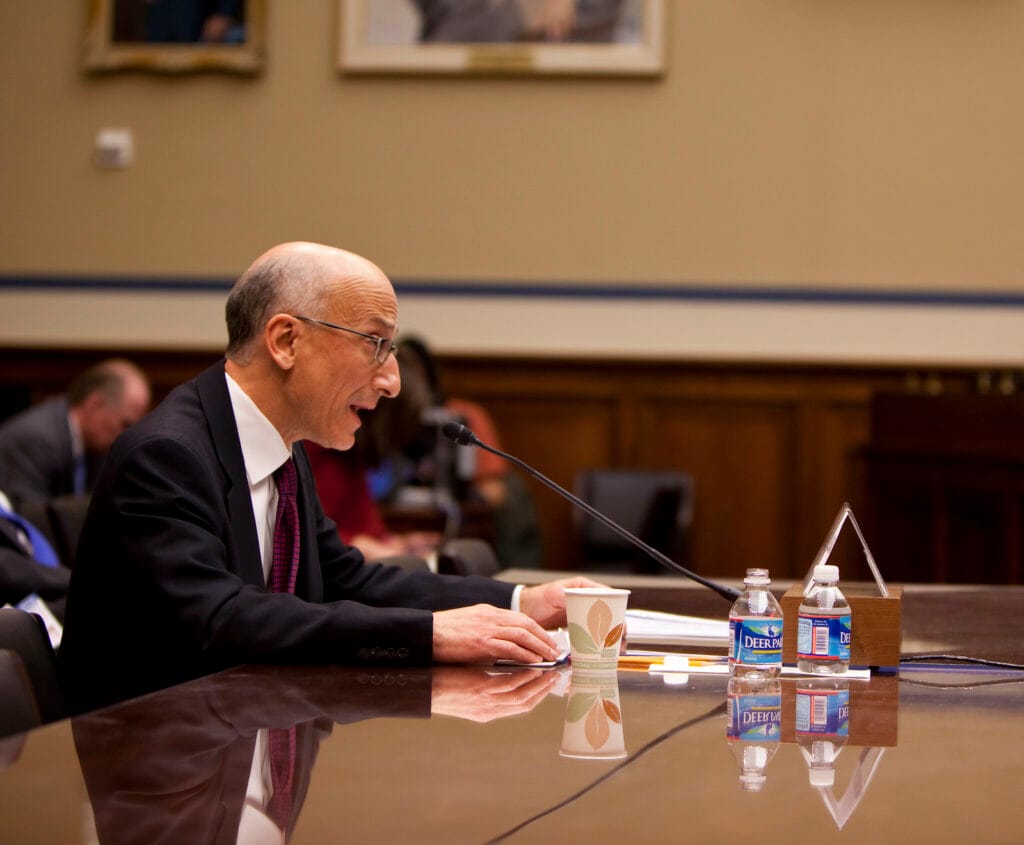Academics Note Financial Inclusion Possibilities of Stablecoins, But Also Warn of Risks
Scholars debate stablecoins as their use increases.
Theadora Soter

WASHINGTON, April 19, 2022 — Academics at an event hosted by the Federalist Society argued Thursday that stablecoins, digital currency that bases their value on other currencies, can improve financial inclusion.
At the law organization’s Thursday event, Paul Jossey, a lawyer and adjunct fellow for cryptocurrencies at the Competitive Enterprise Institute, argued the benefit of stablecoins as a way to increase financial inclusion in the country, while Timothy Massad, a research fellow at the Kennedy School of Government at Harvard University and adjunct professor of law at Georgetown Law School, asserted that it is only one way of many to ensure a more equitable monetary system in America.
“Stablecoins are digital assets pegged to the value of a stable monetary value, usually the US dollar. If you go anywhere in the world right now where there is a crisis, extreme poverty, people in desperate situations, you will find people trying to acquire stablecoin,” said Jossey. Because stablecoins have proven to be in demand around the globe, Jossey said expects them to take off in America if given the proper attention.
Massad, in some ways, said he agrees with Jossey’s point. “People who live paycheck to paycheck, even if they have a paycheck, often face delays in getting their payments cashed – it can take 3-5 days.
“If they need to pay their bills right away, they can’t do that, so what do they do? They go to a check cashing service where they have to pay maybe 10 percent of the value of their check, but they get the cash with which they can pay their bills right away. Speeding up payments would be beneficial to them. Having them be able to have digital accounts that aren’t as costly as bank accounts might be a good thing, too. Stablecoins are potentially a way to address that, but there are other ways to address it too,” he said.
But Massad also noted the risks of using stablecoins as a way to address these problems.
“Blockchains can have issues,” he said, referring to the digital ledger on which all digital transactions are recorded. “They can have software bugs, they can be hacked, they can simply be not big enough, not resilient enough, to handle the trading. They’re not regulated in any way, so there’s a payment system risk there too,” he said.
Jossey agrees that there should be more regulation, but not heavy handed. “I think that this new iteration coming from Web3 where it’s individually centered and the power and the data stay at the individual level and can remain there so…content creators are not giving most of their take to these massive platforms like Youtube. All of this will be fueled by stablecoins.
“In a perfect world the government would be encouraging this [stablecoins] and not stifle innovation. I do agree with Tim that there should be some guardrails as far as disclosure and redemption policies, but other than that we should just let the people who are creating this stuff do their work,” Jossey added.








Member discussion